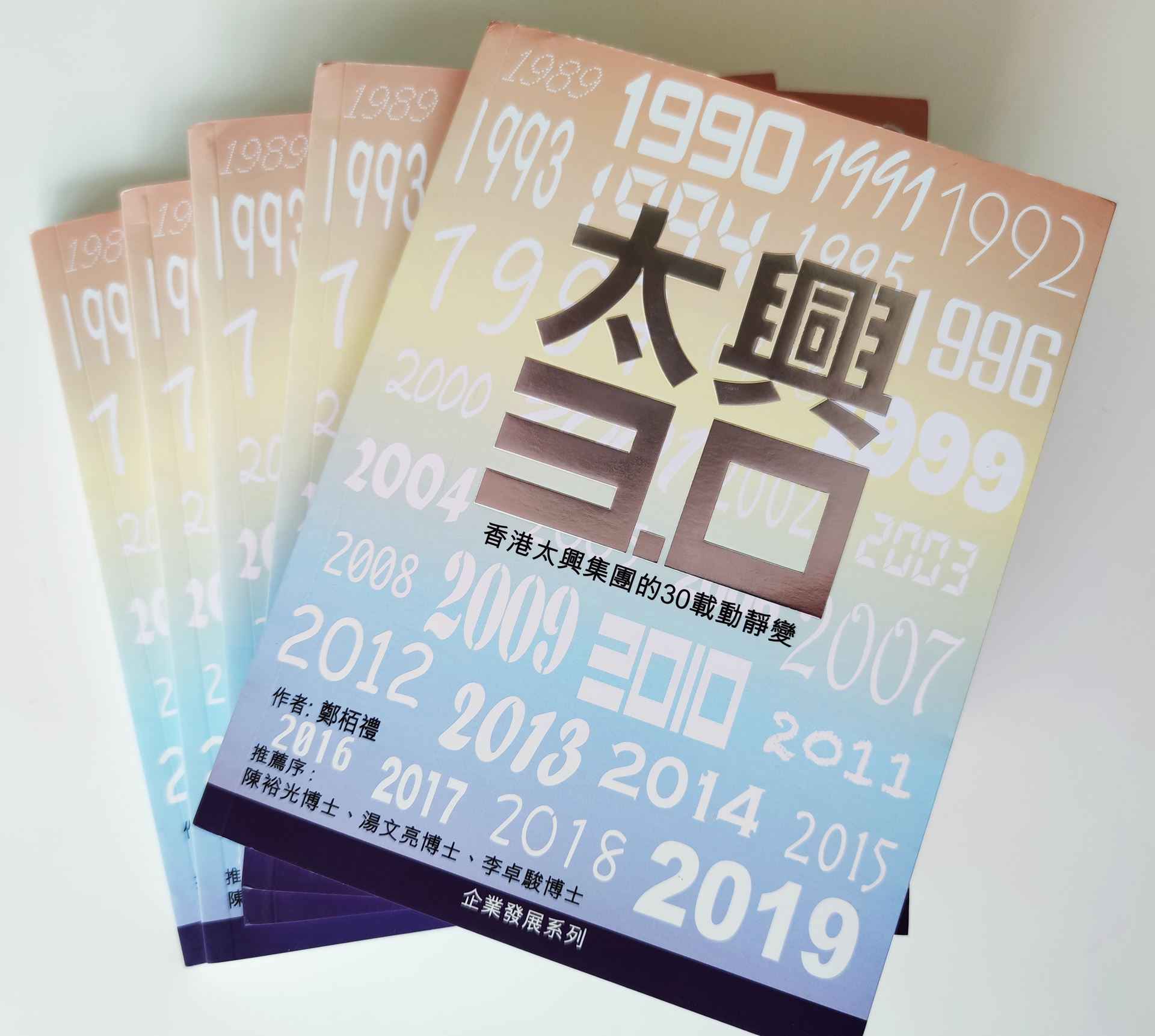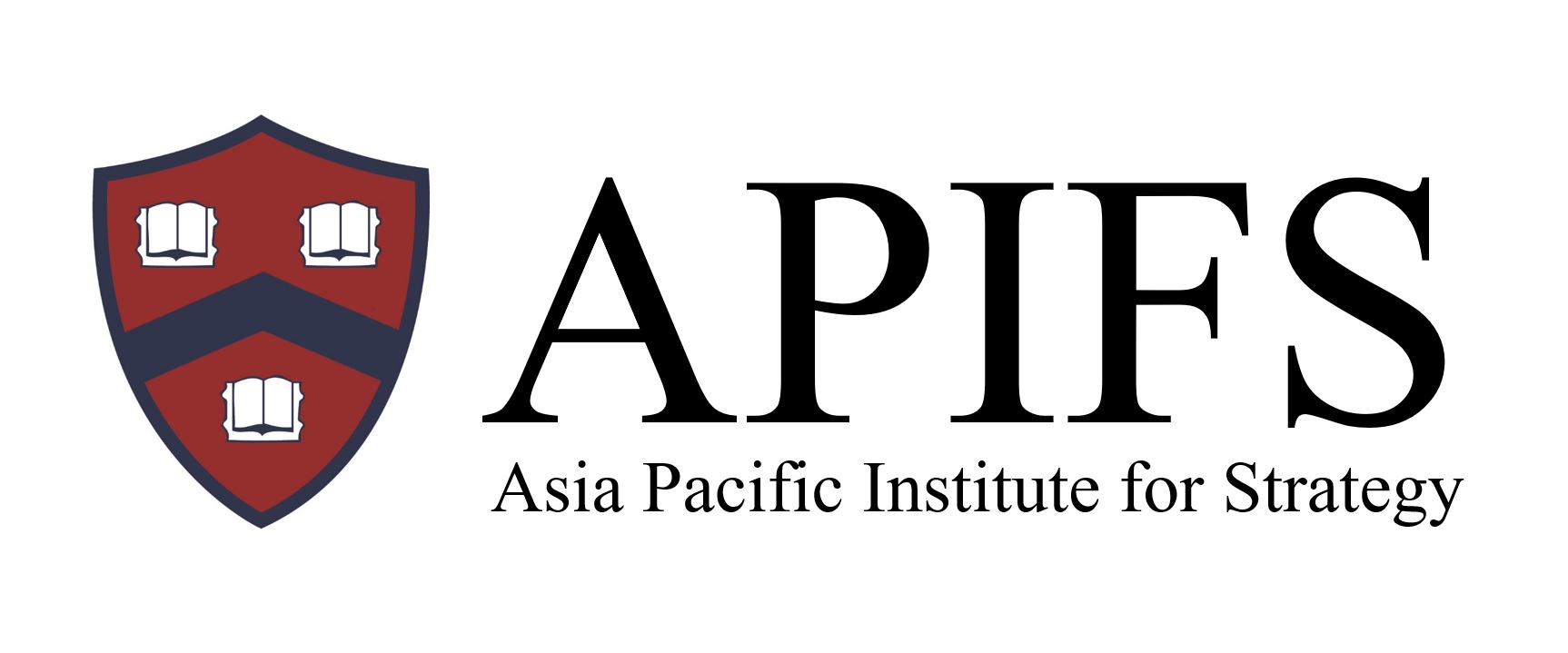
《Tai Hing 3.0》Foreword by Dr. Mark Lee
Upgraded Strategy, Advanced Enterprise
At the 30th anniversary of Tai Hing, Mr. P.L. Cheng wrote a book for Tai Hing again, depicting Tai Hing in the 3.0 era.
The overall strategic upgrade of Tai Hing's brand, talents, operations, and inheritance in the past 5 years inspires me about its "three waves superimposed" corporate strategic choice.
When the three modes of 1.0, 2.0, and 3.0 overlap in a market, the 1.0 mode is likely to have a cliff-like difficult period suddenly. Perhaps many companies choose to enjoy the benefits of the vested mode in the 2.0 mode.
But some companies entering the 3.0 mode will have breakthrough qualitatively and achieve high-dimensional breakthroughs. And Tai Hing 3.0 is Tai Hing's self-breakthrough.
The strategy is to create a unique and advantageous positioning, make choices in the competition, and provide closely linked operating activities for it.
Tai Hing 3.0's positioning of "Tai Hing. Too good taste" indicates that Tai Hing is no longer just a roast and tea restaurant. Positioned on "taste", I believe Tai Hing will be a good "taste" platform.
In this way, Tommy founded a number of brands in the T Factory concept, especially TeaWood, TeaWood Deluxe, Phở Lê, Men Wah Bing Teng, Hot Pot Couple, etc., became logical members of Tai Hing. From the insights of this book, Tai Hing 3.0 is moving towards a platform.
"Repeatable team success" will be the core symbol of the company's becoming a platform. Tai Hing has formed an independent operating team to develop diversified markets and businesses, indicating that Tai Hing will be the organism of many independent closed-loop teams.
"Brand becomes competitive" is the basis for companies to become platforms. Many companies often lose their initial intentions in the process of diversification, leading to loss of control. From the perspective of Tai Hing's emphasis on brand building, Jojo Chan reflects the Tai Hing brand's competitiveness and will gather more social resources.
"Empowering to activate employees" is a new management tool that companies can use as platforms. As Eric Schmidt, the former executive chairman of Google, explained in the interpretation of Google's operations, the most important function of the organization in the future is empowerment, no longer management or incentive.
Tai Hing's emphasis on employee empowerment is a requirement of Tai Hing's organizational development and a fit for the demands of a new generation of employees.
"Enable technology" is the only way to ensure platform standards, because technology is the most faithful executor of standardization. It is found in our research that many entrepreneurs are fully betting on new technologies in the search for enterprise transformation.
Excessive worship of technology often leads to technicalism. The Tai Hing 3.0 era will return new technologies to business use, handing over standard and standard work to technology, handing over complex and repetitive work to technology, and handing over data and transmission to technology to better implement operating standards.
When "culture drives business," the business will be a self-consistent organism. "To run an enterprise, one year's success depends on luck, ten years' success depends on management, and one hundred years of success depends on corporate culture." Mr. Chen Yongan's "cultural heritage" business ideas will be the soul of Tai Hing's self-consistent and sustainable development.
Public listing is an identification of Tai Hing by the capital market and an expectation of 3.0. I believe Tai Hing will continue to adhere to its own brand, culture and operational positioning.
On the one hand, it can continue to innovate and make breakthroughs in its business. On the other hand, it also sets a new benchmark for Hong Kong companies.
Readers are advised to taste the "taste" of Tai Hing Foods, as well as the "taste" of Tai Hing 3.0.
Dr. Mark Lee
Research Director, Asia Pacific Institute for Strategy
Hong Kong
Related Articles:
[CEO Insights]Crystal Interview:Management Philosophy for an Enterprise from Zero to Billions
[CEO Coaching]Octopus Interview: Innovative Thinking Strategy
[CEO Coaching]BEA Interview: Development Opportunities for Hong Kong Banking Industry
[CEO Coaching]Pfizer Hong Kong Exclusive Interview:What makes a successful enterprise?
[CEO Coaching]Ericsson (HK) Limited Interview:Would Hong Kong lose its competitive edge in 5G era?
Australia: +61 3 9015 4991
Singapore: +65 6850 5067
Hong Kong: +852 3970 1828
Email: cs@apifs.net
Asia Pacific Institute for Strategy (C) 2026
